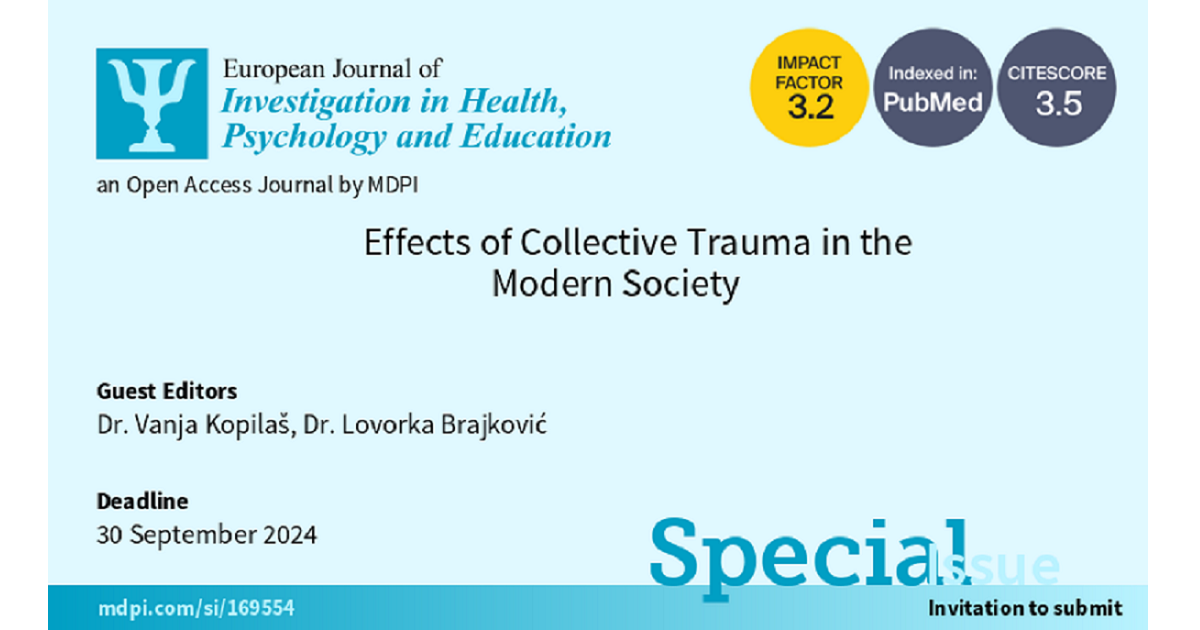Effects of Collective Trauma in the Modern Society
A special issue of European Journal of Investigation in Health, Psychology and Education (ISSN 2254-9625).
Deadline for manuscript submissions: 30 September 2024 | Viewed by 1189

Special Issue Editors
Interests: clinical psychology and neuroscience; cognitive psychology; biopsychology; neuropsychology
Special Issues, Collections and Topics in MDPI journals
Interests: psychology; public health; clinical psychology; biopsychology; palliative psychology
Special Issues, Collections and Topics in MDPI journals
Special Issue Information
Dear Colleagues,
In an era of uncertainty, it is expected to experience changes in everyday functioning. Crises, such as war, natural disasters, or other catastrophes that are out of our control and influence, can easily form collective traumatic experiences. Collective trauma refers to the effect of a traumatic experience that impacts and involves entire communities, societies, or groups of people. Since collective traumas can be passed down to future generations and form transgenerational trauma, it is important to detect these experiences and implement appropriate tools necessary for rehabilitation, post-traumatic growth, and resilience.
This Special Issue calls for the submission of manuscripts related to the effects of various collective traumas on everyday functioning in the modern world and appropriate coping skills needed to reduce the impact of symptoms in the aftermath of a traumatic experience.
Dr. Vanja Kopilaš
Dr. Lovorka Brajković
Guest Editors
Manuscript Submission Information
Manuscripts should be submitted online at www.mdpi.com by registering and logging in to this website. Once you are registered, click here to go to the submission form. Manuscripts can be submitted until the deadline. All submissions that pass pre-check are peer-reviewed. Accepted papers will be published continuously in the journal (as soon as accepted) and will be listed together on the special issue website. Research articles, review articles as well as short communications are invited. For planned papers, a title and short abstract (about 100 words) can be sent to the Editorial Office for announcement on this website.
Submitted manuscripts should not have been published previously, nor be under consideration for publication elsewhere (except conference proceedings papers). All manuscripts are thoroughly refereed through a single-blind peer-review process. A guide for authors and other relevant information for submission of manuscripts is available on the Instructions for Authors page. European Journal of Investigation in Health, Psychology and Education is an international peer-reviewed open access monthly journal published by MDPI.
Please visit the Instructions for Authors page before submitting a manuscript. The Article Processing Charge (APC) for publication in this open access journal is 1400 CHF (Swiss Francs). Submitted papers should be well formatted and use good English. Authors may use MDPI's English editing service prior to publication or during author revisions.
Keywords
- trauma
- resilience
- PTSD
- post-traumatic growth
- coping skills







